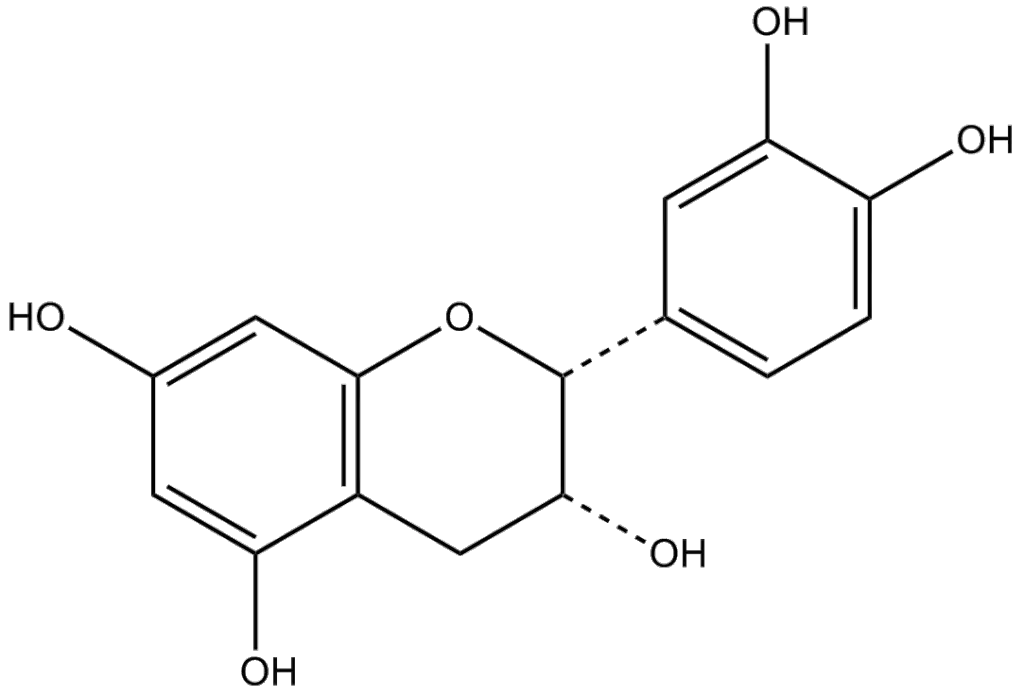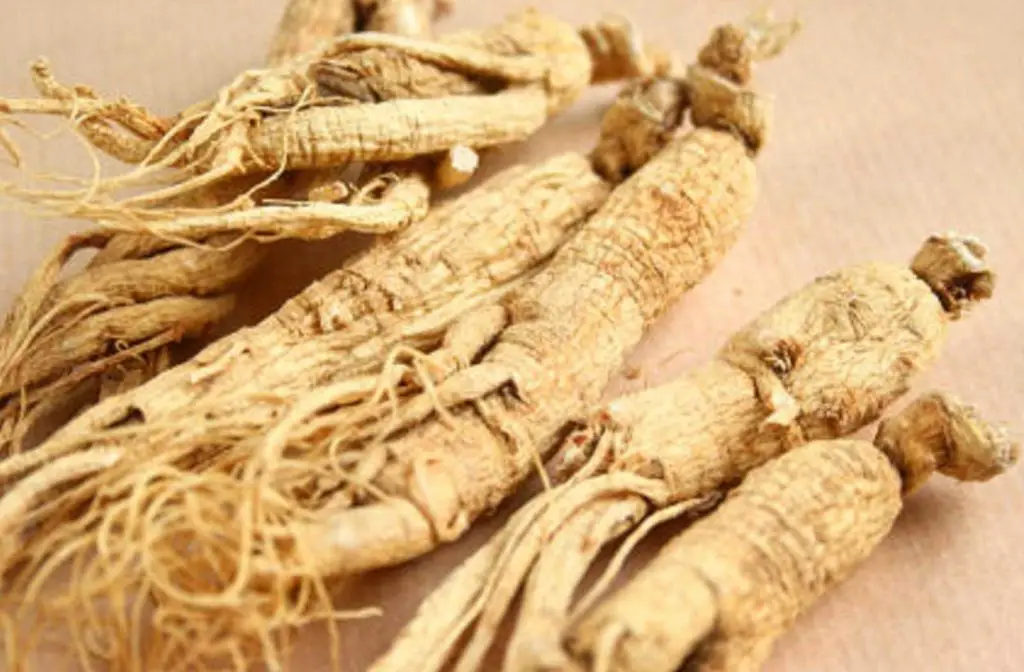What is Epicatechin?
Epicatechin[i] is a naturally-occurring substance (technically, a “monomeric flavanol”) found in a variety of common foods, including certain fruits, green and white tea, and, especially, cocoa. Diets rich in epicatechin, or other flavanoids, have been linked to a number of health benefits, such as a lower risk of dementia. Claims that chocolate, green tea, or red wine is “good for you” do have some epidemiological support and appear to be based on the action of flavanoids.
Supplementation with epicatechin extracts makes possible higher doses—there is a limit to how much chocolate can be eaten, even by serious chocoholics—and is popular among bodybuilders and athletes as a way to increase muscle mass and endurance. The substance is also being investigated as a possible treatment for a wide variety of conditions, including both diabetes and cancer. In general, such supplementation seems to work better in combination with other treatments than alone, although much of the research out there is still preliminary. Many important questions have not yet been answered.
How does Epicatechin Work?
Epicatechin has a number of different effects on the body, making it difficult to draw generalized conclusions about how the substance works overall. It makes more sense to discuss each major use of epicatechin individually.
Epicatechin Benefits and Uses
Among the most popular uses of epicatechin is for performance-enhancement in bodybuilding and athletics, but the supplement also has promise for reducing mortality from such ailments as diabetes and cancer. Much of the relevant research is through animal studies, but there have been studies involving human subjects as well.
Building Muscle
Although building muscle is an obvious interest of bodybuilders, epicatechin’s effect on muscle mass has primarily been studied in relation to sarcopenia, a form of muscle-wasting common in older adults, though it can occur in younger patients as well [ii]. Sarcopenia is related to factors including age, diet, activity level, and certain illnesses, and it leads to serious disability.
The action of epicatechin appears to depend on the balance of two substances that occur naturally in the human body, myostatin and follistatin, that between them control muscle growth in response to exercise. Myostatin acts to inhibit muscle growth, but is itself inhibited by follistatin. Epicatechin improves the myostatin/follistatin ratio and makes more muscle growth possible.
In one human study of men with sarcopenia[iii], subjects were given either epicatechin or strength training alone, or both together, or a placebo. After eight weeks, the men who had received both strength training and epicatechin showed increased levels of follistatin, decreased levels of myostatin, and improved muscle strength. While those who received the supplement alone, like those who only exercised, did show some improvement—and did better than those who received a placebo only—epicatechin alone did less good than strength training alone did.
While the study was relatively small, involving only a few dozen participants, it does support the idea that epicatechin enhances muscle growth, but perhaps only in combination with exercise. If you’re looking through other possible bodybuilding supplements, you can also check out Beta-Ecdysterone.
Endurance
One study showed that mice given both endurance training and epicatechin supplementation over eight weeks could run farther by the end of the study than mice who had had either training or epicatechin alone[iv]. All three groups (mice with epicatechin, exercise, or both) did better than mice who received neither supplements nor training. The mechanism appears to be that epicatechin improves both blood flow and cellular metabolism.
In another study, mice who had received endurance training and epicatechin supplementation were divided into two groups, one of which was then taken out of training for 14 days[v]. At the end of the study, the mice who had stopped training were still as fit as those who had continued, suggesting that epicatechin may be able to prevent or slow loss of conditioning in athletes who must suspend training (after injury, for example).
However, a study of humans receiving endurance training and either epicatechin or a placebo showed little to no benefit from epicatechin[vi]. The authors of the study caution that more research is needed, as there are some important questions that their study design did not address.
While it may be premature to conclude that epicatechin does not give men and women the same benefits it gives to mice, it is clear that the picture is more complicated that it would seem from the mouse studies alone.
Cognition
Epicatechin has also been studied as a way to improve cognitive function in older adults. The effect seems to involve increased blood flow in the brain and to improve tasks that require memory, executive function, and processing speed. A scholarly review of relevant studies[vii] noted that in study after study, people over 50 years old who stay on cocoa flavanols (including epicatchin) for 28 days or longer consistently see cognitive improvement—though results are better at higher doses. There is some indication that healthy, young adults do not benefit cognitively from cocoa flavanols, possibly because they simply don’t need it.
The problem is that all of the studies in the review involved multiple flavanoids used together, meaning there is no way to know what the result of the epicatechin alone might be, or what role synergistic effects of multiple flavanoids acting together might be playing.
Cancer
Epicatechin has a reputation—supported by some research[viii]—for fighting various cancers, either by killing cancer cells directly or by preventing the tumor from stimulating the growth of blood vessels to feed it. The exact mechanism involved is not known, however.
A more precise claim is that epicatechin enhances the anti-cancer benefits of curcumin, a substance found in turmeric root (the root somewhat resembles ginger, except for being bright orange, and is a popular ingredient in curries). One study found that epicatechin combined with curcumin suppressed cultures of cells taken from lung cancers are better than either substance could alone[ix].
Editor’s Caution. Consult with your doctor and oncologist before taking anything in addition to your prescribed cancer treatments.Diabetes
Both epidemiological research in humans and experimental evidence from mice suggests epicatechin could effectively treat or prevent some forms of diabetes[x]. At least one human community where a cocoa-based drink is very popular has unusually low rates of a number of serious health problems, including diabetes, an advantage residents lose when they move away and learn to drink cocoa less often. Researchers concluded that since epicatechin is found in much higher levels in the blood of cocoa-drinkers than the other cocoa flavanoids, it is most likely responsible for any health benefits. They then put epicatechin in the water of mice bred to develop Type I diabetes and compared the rate of diabetes in these animals verses similar but untreated mice. The results were dramatic; most of the treated mice did not get sick.
Epicatechin treatment did not change the way the mice ate and drank, nor did it change their weight, so epicatechin must work some other way. In fact, Type I diabetes is an autoimmune disease in which the pancreas is damaged by the body’s own inflammatory response. Epicatechin reduces inflammation, apparently protecting the pancreas so that the autoimmune problem, while still present, is less likely to cause diabetes.
Whether epicatechin could treat Type 1 diabetes that is already established, or whether it could treat or prevent Type 2 diabetes, seem to be separate questions. Some studies have shown that epicatechin reduces blood sugar in patients who already have diabetes[xi].
Heart Disease
In many studies of the effects of epicatechin, aspects of cardiovascular health are mentioned, almost in passing. Does epicatechin also improve cardiovascular health, then? Indeed, it may.
A review of the literature cited many studies that show higher consumption of epicatechin (and related substances, such as catechin) decreases blood pressure and reduces the risk of stroke, atherosclerosis, and other problems of the vascular system[xii]. The review also cited studies that showed little or no benefit, though most results did support the link between epicatechin and cardiovascular health. The authors of the review caution that many of the studies in the review didn’t note whether participants were also on blood-pressure medications, a potentially confusing factor. Many also involved dietary epicatechin, such as chocolate, rather than pure epicatechin, meaning that other substances in the food, including some known to raise blood pressure, could be complicating the picture.
Epicatechin Dosage
Dosage has varied between studies and is in many case complicated by the presence of other substances, such as other flavanoids that could enhance the effect, or fats and sugars that could sabotage it. No standardized recommendation appears to exist; the optimal dose may depend on what the supplement is intended to treat. Users should therefore seek the judgment of experienced practitioners.
It is worth noting that while epicatechin appears relatively safe itself, it is often concentrated in foods and beverages that should not be taken to excess, such as chocolate and wine.
Epicatechin Side Effects, Safety, Dangers and Warnings
Epicatechin itself has no reported side effects, drug interactions, or other warnings, except at extremely high doses far outside what anyone recommends (it is worth noting that even an overdose of water can be fatal, yet water is rightly regarded as safe to drink). However, a lack of reported problems should not be taken as a guarantee that no problems could ever exist.
Epicatechin-containing foods, however, may carry significant warnings. For example, cocoa, taken as a supplement for its epicatechin content, has a large number of applicable warnings and possible drug interactions, largely because it also contains caffeine[xiii]. A related problem is that even epicatechin supplements sold as pills or powders often carry warnings because these products sometimes include other supplements
The important thing, therefore, is to be aware not only of what epicatechin can do, but also of what the substances the user may consume with the epicatechin can
References:
[i] Haskell-Ramsay C.F., Schmitt J., Actis-Goretta L. (2018). “The Impact of Epicatechin on Human Cognition: The Role of Cerebral Blood Flow.” Nutrients. 10(8): 986.
[ii] Santilli V., Bernetti A., Mangone M., Paoloni M. (2014). “Clinical Definition of Sarcopenia.” Clinical Cases in Mineral and Bone Metabolism. 11(3): 177–180.
[iii] Mafi F., Biglari S., Ghardashi Afousi A., Gaeini AA. (2019). “Improvement in Skeletal Muscle Strength and Plasma Levels of Follistatin and Myostatin Induced by an 8-Week Resistance Training and Epicatechin Supplementation in Sarcopenic Older Adults.” Journal of Aging and Physical Activity. 27(3): 384–391.
[iv] Lee I., Hüttemann M., Kruger A., Bollig-Fischer A., Malek M. H. (2015). “(-)-Epicatechin Combined with 8 Weeks of Treadmill Exercise Is Associated with Increased Angiogenic and Mitochondrial Signaling in Mice.” Frontiers in Pharmacology. 6:43.
[v] Hüttemann M., Lee I., Malek M. H. (2012). “(-)-Epicatechin Maintains Endurance Training Adaptation in Mice After 14 Days of Detraining.” FASEB Journal. 26(4): 1413—22.
[vi] Schwarz N.A., Blahnik Z. J., Prahadeeswaran S., McKinley-Barnard S. L., Holden S. L., Waldhelm A. (2018). “(-)- Epicatechin Supplementation Inhibits Adaptations to Cycling Exercise in Humans.” Frontiers in Nutrition. December 21.
[vii] Haskell-Ramsay C. F., Schmitt J., Actis-Goretta L. (2018). “The Impact of Epicatechin on Human Cognition: The Role of Cerebral Blood Flow.” Nutrients. 10(8): 986.
[viii] Abdulkhaleq L. A., Assi M. A., Noor M. H. M., Abdullah R., Saad M. Z., Taufiq-Yap Y. H. (2017). “Therapeutic Uses of Epicatechin in Diabetes and Cancer.” Veterinary World. 10(8): 869–872.
[ix] Saha A., Kuzuhara T., Echigo N., Suganuma M., Fujiki H. (2010). “New Role of (-)-Epicatechin in Enhancing the Induction of Growth Inhibition and Apoptosis in Human Lung Cancer Cells by Curcumin.” Cancer Prevention Research. 3(8): 953–62.
[x] Fu Z., Yuskavage J., Liu D. (2013). “Dietary Flavonol Epicatechin Prevents the Onset of Type 1 Diabetes in Non-obese Diabetic (NOD) Mice.” Journal of Agricultural and Food Chemistry. 61(18): 4303–4309.
[xi] Abdulkhaleq L. A., Assi M. A., Noor M. H. M., Abdullah R., Saad M. Z., Taufiq-Yap Y. H. (2017). “Therapeutic Uses of Epicatechin in Diabetes and Cancer.” Veterinary World. 10(8): 869–872.
[xii] Mangels D. R., Mohler E. R. (2017). “Catechins as Potential Mediators of Cardiovascular Health.” Arteriosclerosis, Thrombosis, and Vascular Biology. 37: 757–762.
[xiii] WebMD review of Cocoa. Retrieved on August 4, 2019.





Great article about epicatechin. One thing I don’t think is true though is this: “For example, muscle-building supplements may combine epicatechin with testosterone”. I don’t think anyone does that for several reasons.
Thanks Albert. I think you’re right, must have been a brain fart.